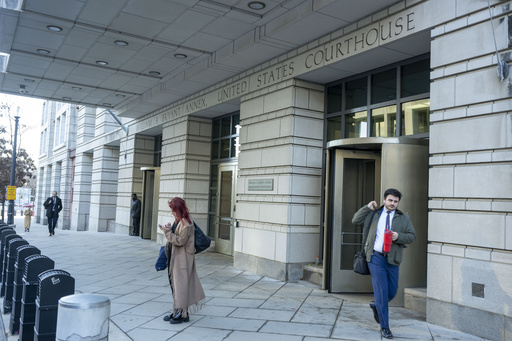In Washington, a federal judge opted against an immediate mandate for the White House to reinstate The Associated Press’ access to presidential engagements, asserting that the news agency hadn’t shown it faced any irreparable damage. The judge nonetheless encouraged the Trump administration to reconsider its two-week-old exclusion, pointing out that legal precedents do not support the White House’s stance.
U.S. District Judge Trevor N. McFadden’s decision is temporary, remarking that the matter needs a deeper examination before a final judgment is rendered. During court proceedings, McFadden queried both parties about a lawsuit filed by the AP last Friday. This lawsuit claims the AP’s First Amendment rights have been violated since the ban started incrementally two weeks prior. President Donald Trump stated the revocation was in response to the agency’s decision to maintain using “Gulf of Mexico” instead of “Gulf of America,” as he renamed it in an executive order.
In discussing the role of the “press pool,” which is selected by the White House Correspondents’ Association, McFadden questioned why the government felt obliged to honor those selections. He posited, “It feels a little odd that the White House is somehow bound by the decisions this private organization is making,” addressing AP attorneys. Moreover, he queried the significance of AP’s long-standing membership in the White House press pool. “Is this administration somehow bound by what happened with President McKinley?” he asked, while acknowledging that the correspondents’ association had long been responsible for choosing pool members.
“The White House has accepted the correspondents’ association to be the referee here and has just discriminated against one organization. That does seem problematic,” McFadden remarked in conversation with government lawyer Brian Hudak. Later, the judge urged the government to reconsider, warning that “case law in this circuit is uniformly unhelpful to the White House.”
The AP justifies its retention of the “Gulf of Mexico” name due to its global readership, while also noting Trump’s new designation. The AP argues that the situation touches upon the First Amendment’s core principle that prevents government punishment for speech. The White House, on the other hand, claims that presidential access is a privilege, not a guaranteed right.
Over the past month, the Trump administration has blocked AP’s access to areas such as the Oval Office and Air Force One, places where the agency has traditionally been present for a century as a part of the White House press pool. The contention arises from AP’s non-compliance with Trump’s executive order renaming the body of water.
The AP filed the lawsuit against three Trump officials – Susan Wiles, Taylor Budowich, and Karoline Leavitt. They argue that the White House’s actions are a “targeted attack” prohibited by the First Amendment. “The press and all people in the United States have the right to choose their own words and not be retaliated against by the government,” stated the AP in its lawsuit.
The White House retorts that its actions are not a free speech violation. “The only person who has the absolute right to occupy those spaces is the president of the United States,” affirmed Susan Wiles in correspondence with Julie Pace, AP’s executive editor. “For the rest of us, it’s a privilege, and to suggest otherwise is wrong.”
A collective of news entities, including allies of Trump like Fox News and Newsmax, recently penned a letter urging the White House to retract its policy. Dismissing AP, Trump labelled the organization as “radical left lunatics” and asserted, “We’re going to keep them out until such time as they agree that it’s the Gulf of America.”
This isn’t the first instance of its nature, nor is it Trump’s first such involvement. During his initial term, CNN reporter Jim Acosta faced revoked credentials. CNN’s subsequent lawsuit resulted in another Trump-appointed judge favoring Acosta, leading to restored access.




